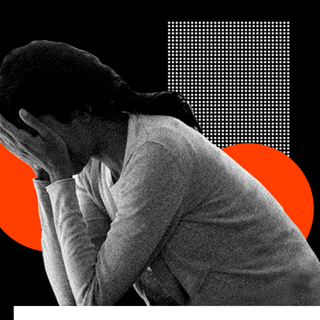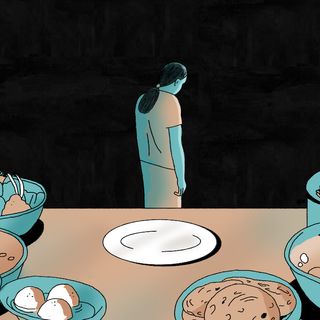Extreme calorie restrictions can alter the gut microbiome by increasing the population of a dangerous bacterium linked to severe diarrhea and inflammation in the gut, according to a new study.
Published in Nature, the researchers mapped the increase in the bacterium called Clostridioides difficile (C. difficile). The gut microbiome is notoriously unique and includes trillions of different microorganisms that aid digestion and immunity. Our specific microbiome is affected by the place we live in, the food we eat, the physical touch of other organisms, along with a host of other factors.
The make-up of these gut microbes can thus change on a low-calorie diet. For the purpose of this study, researchers monitored 80 overweight and obese women for 16 weeks. Half of them were put on an extreme diet that limited their intake to 800 calories per day in liquid form. The other half ate normally and maintained their existing body weight.
“Our results underscore that the role of calories in weight management is much more complex than simply how much energy a person is taking in,” says microbiologist Peter Turnbaugh, Ph.D., an associate professor of microbiology and immunology and a senior author of the study.
Although the group on the diet did lose weight, there were also significant shifts in the make-up of bacteria in their gut. “We found that this very-low-calorie diet profoundly altered the gut microbiome, including an overall decrease in gut bacteria,” Turnbaugh said.
Our gut microbiome is a “complex reflection of the various microbial experiences and contact you’ve had throughout your life,” Liesl Goecker wrote for The Swaddle in 2018. Previous research has shown that a lack of microbial diversity plays can impact immunity and may even account for the rise in the incidence of autoimmune diseases in the West.
Related on The Swaddle:
A Combination of Exercise and Calorie Restriction Could Negatively Impact Bone Health
The bacterium C. difficile occurs naturally in our guts and is associated with the process of fat metabolism. However, its growth is usually kept in check by our digestive processes when we eat. So when people eat less — particularly less fat — this results in the rise of C. difficile in the body. Their conclusion was that the “hungry microbiome” that increases after low-calorie diets can alter the way our gut processes food and energy.
The researchers linked the bacterium with gut problems like digestive system issues — such as diarrhea and colitis — that have been proven to be fatal. While the ill effects that would normally be expected from C. difficile didn’t show up in the studied participants, researchers say this would have changed if the diet had continued.
These findings are pertinent in the backdrop of the “800-calorie” fads (remember Bridget Jones’ goal in her diary?) and liquid diets, where reduced eating could potentially alter the composition of the gut microbiome.
In order to explore the relationship between the bacteria and weight loss, the researchers collected fecal samples from all 80 participants, before and after the trial. They transplanted the samples into mice — after which the mice continued to eat the same amount. Mice that had the post-diet sample lost weight, owing to increase in the C. difficile bacteria. This is because, left unchecked, C. difficile takes up more sugars, leaving less for their hosts.
The researchers, however, cautioned against viewing the dangerous bacterium as a shortcut for serious and sustainable weight loss.
There’s “a lot of biology left to unpack here,” Turnbaugh said, noting how the gut microbiome varies between individuals, gender, and geographies. Researchers eye further studies that answer the long-term changes in how our gut processes food as a result of weight loss or how sustainable this weight loss would be. Moreover, further studies and larger sample size can help with long-term research for individuals with obesity.
In the end, this is an important reminder of how important a healthy gut microbiome is.




